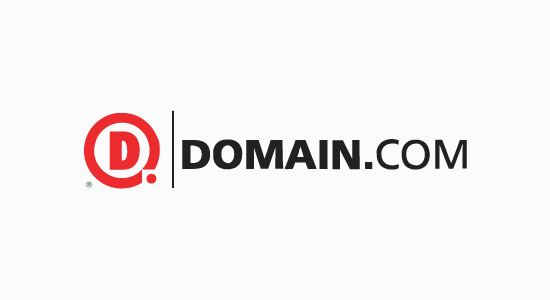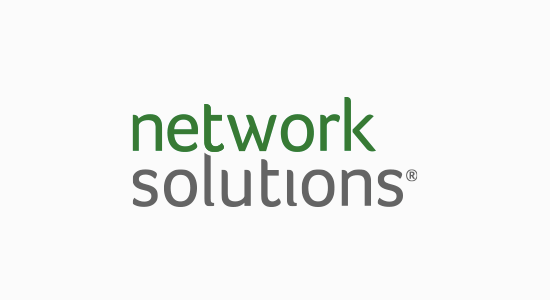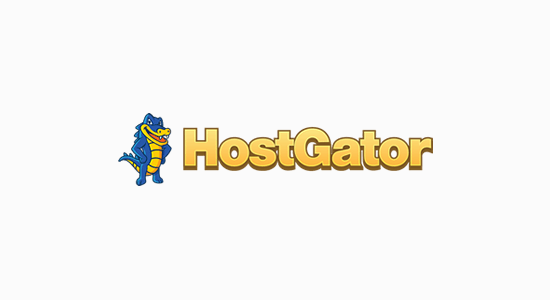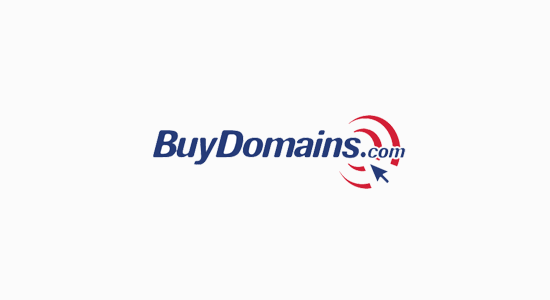Finding and selecting the ideal domain registrar may be an exceedingly challenging task. There are a lot of businesses that provide appealing beginning prices, but they make up for it with expensive renewal prices, extensive features, and lengthy contracts. We put together a list of the best domain registrars that you should be aware of in order to assist remove some of the confusion associated with the process and to prevent any surprises that may arise along the road. After choosing the Best Domain Registrar you can go to how to buy a Domain Name.

Table of Contents
What Is a Domain Name Registrar?
A domain registrar, often known as a DNS registrar (short for domain name server), is a company that offers domain names and conducts the registration process. Domain names are the primary web addresses used by websites—the item that normally begins with www and usually ends with.com.
While computers use a different kind of address to identify websites—an IP address, which is a lengthy string of digits separated by periods (e.g. 111.111.111.111)—humans aren’t very good at remembering and utilizing that type of address. Websites, like us, have an address composed of alphanumeric letters that commonly spell out a word or brand name.
And there is a special procedure for claiming domain names. The various top-level domains are managed by registries. The registries are massive, centralised databases that include information on which domain names have been claimed and by whom. However, the registries do not sell the names directly; instead, DNS registrars do.
The Internet Corporation for Assigned Names and Numbers (ICANN) must approve registrars. Then, if they sell a domain to a client, they must register it with the relevant registration by updating a record with your information.
What Do Domain Registrars Really Do?
Registering a new DNS domain name is a vital step in the process of launching a new website, blog, email, or other Internet service. Registration adds the new domain name to the global DNS, allowing everyone on the Internet to resolve it and access its services.
Without registering a domain name, you may launch a new website or other Internet service. You could, for example, start a new blog and publish it using someone else’s domain, such as example.wordpress.org. However, you may like to have your own domain name, such as example.org. To do this, you must register example.org in the DNS.
When you register a domain name, it is added to the list of domain names on the Internet DNS by your registrar. Of course, reality is a little more complicated. So let’s see how it works in practise.
A registry is a centralised database that stores all domain name records. To be recognised, a domain name must be entered to the database along with all relevant information.
ICANN authorizes a domain name registrar to make modifications to your domain name’s information in the database on your behalf. A domain name registrar will also give simple tools for making such adjustments via your web browser.
That being said, let’s take a look at how to quickly locate the best domain registrar for your website address.
How to Choose the Right Domain Registrar
Not every domain registrar is permitted to sell all domain name extensions. Some domain registrars, for instance, can only sell domain names with country-specific extensions (such as.io,.in, and.ly).
Each domain registrar may provide additional services in addition to domain registration. Some registrars may provide discounted domains as a promotional offer, while others may provide complimentary add-ons to attract customers.
When selecting the finest domain name registrar, we considered the four factors listed below.
1.Reasonable Price
Price is always an essential consideration for all commercial purchases. When selecting a domain registrar, you must thoroughly examine the pricing structure.
The cost of domain names will vary depending on the domain extension, such as.com,.org,.net, or.io. You do not need to visit the priciest registrar. Instead, compare the prices of the leading registrars for the domain names you prefer.
Choose a company that offers a competitive price for the domain and a stellar reputation for service.
2.Registration Period
Minimum registration period for a domain name is one year. Nonetheless, certain companies may require a minimum registration period of two years. A domain name can be registered for up to ten years at a time.
If you are purchasing a new domain name, we recommend registering it for one year. You can enable automatic renewal to prevent your domain from expiring.
You also need to check for any additional fees for domain transfers, renewal, and other charges.
3.Renewal Prices
When you purchase a domain, it is only valid for a limited time, after which you must renew it. Obviously, you will not abandon the website domain after the initial registration period expires. Therefore, you must consider domain renewal fees when selecting a domain registrar.
Typically, domain renewal fees are greater than initial domain registration fees. Examine the terms and prices of various registrars to determine who offers the most affordable renewal prices.
Moreover, you may wish to give precedence to a domain registrar that provides a straightforward renewal procedure and has no obscure terms.
4.Domain Transfers
Domains can be transferred from one registrar to another. Normally, you will not immediately need to transfer your domain name, but if you are dissatisfied with your domain registrar, this option should be readily accessible.
First, remember that you cannot transfer a domain name within the first 60 days of registration. This period is determined by ICANN. The domain may then be transferred to any other registrar of your choosing.
Most domain registrars make domain name transfers simple and free of charge. However, some may attempt to confound the process or charge an additional fee to remove domain restriction.
Before purchasing a domain name from a registrar, you must thoroughly research the domain transfer policy.
5.Transparent Processes
When selecting a domain registrar for your website, you must search for the same level of openness as in your work. A trustworthy business has nothing to conceal from its consumers. Choose a registrar company with transparent pricing, policies, and procedures.
Find registrars that provide upfront pricing information and detailed terms and conditions, so you don’t have to deal with unpleasant surprises later.
Check to see if you can readily locate vital details such as the renewal procedure and associated fees, the domain transfer procedure, and the domain registration cancellation policy on their websites. If you answered yes, you can likely rely on the registrar.
It is advisable to examine the registrar’s social media accounts for any dissatisfied comments from existing customers. To ensure that you can avoid similar situations in the future, you should conduct additional research surrounding these comments.
6.Policy for Domain Expiration
Domain names are registered for a particular period of time. Your domain registration can be renewed prior to its expiration. However, if you forget to renew your domain name, it will expire and become available for registration by anyone.
This means that a company’s domain name could be taken over. To prevent this from happening, you can set up automatic renewals for your domain name.
Even if you use the automatic renewal feature, it is a good idea to review the expiration policy of your domain registrar. Some domain registrars provide a grace period after the domain has expired. This grace period allows you to renew a domain name that has expired.
In contrast, poor domain registration services will auction off your expired domain to the highest bidder immediately.
We’ve heard dozens of harrowing tales about business owners losing their domain name because their credit card expired and their registrar lacked a grace period. This is one of the many reasons why selecting the correct domain name registrar is crucial.
7.Add-on Services
The purchase of a domain name is not the end of your requirements in relation to domains. Services like as web hosting, email hosting, security, email marketing, and many more are essential to your operation and cannot be ignored.
In addition to selling domain names, several of the most well-known domain registrars also provide these other services. If you sign up for other services provided by the same company, some businesses may even provide the domain name at no additional cost. You could save money in the long run if you get all of your online services from a single provider.
Therefore, you should take into consideration the bundle package costs of various registrars and acquire several services at a price that is within your budget.
You may also want to look into the many other services that are provided by the registrant of your domain. Even if you may not use these services right away, it is nevertheless beneficial for you to be aware that they are available.
Domain privacy, domain parking, extended expiry protection, and maybe much more are some of the add-on services that may be included in these.
There are also domain registrars that provide website builders, email hosting services, WordPress hosting services, and more. Some domain registrars even sell email marketing services.
8.Data Privacy
When you purchase a domain name for your website, the registrar business receives some personally identifiable information from you. Working with a domain registrar requires you to maintain a high level of concern for the confidentiality of your data. The registrar is responsible for preventing your data from being made public.
Also, be wary of businesses who have a history of engaging in questionable practises, such as mining the WHOIS database, selling their client data to other parties, or sending fake renewal bills to its customers.
Always be sure to choose a registration firm that is trustworthy enough not to sell your information to other parties or get engaged in unethical practises. In the event that you launch your website before conducting the essential research and analysis, you will put yourself in a precarious situation.
9.Transfer Process and Fees
In the event that you are dissatisfied with the services provided by your current domain registrar, the last thing you want to do is have to pay a significant amount in order to transfer your domain to a new registrar.
Even while the vast majority of reputable registrars do not impose additional fees for the transfer of domain names, you should nevertheless go through their domain transfer rules in advance.
There are registrars that not only make the procedure of transferring difficult but also make it impossible to relocate. Before deciding on a registrar, it is important to check out the procedure for transferring domain names.
10.Reliable Support
When you register a domain name, you won’t know what the future has for you until much later on. Problems might pop up out of nowhere, and if they do, you need to get in touch with the firm that registers domain names so they can help you.
You don’t want a support executive trying to upsell you on more features when you’re trying to find a solution right away. You should look for a registrar that can provide expert support with any questions you have, whether they are technical or general in nature.
You should do in-depth research on the registration firms you are considering and examine the user evaluations of their customer assistance. You could also think about contacting the support staff before making the ultimate choice.
11.User Experience and Reminders
Finally, user experience is an important factor to consider when selecting a registration firm. The company’s website should be simple to use and straightforward. If you encounter any problems, you must instantly get the appropriate information from the registrar’s website.
When help is not immediately accessible, a registrant with a knowledge base is quite valuable. To avoid losing control of your domain name, you must renew it on time.
When it comes time to renew your domain, a good registrar will give you an automatic reminder before the name expires. This function will be useful if you haven’t enabled auto-renewal or received a new credit card.
12 Best Domain Registrars to Buy a Domain Name
Choosing the correct domain registrar protects you from future headaches. It protects your brand identity and makes it simple to transfer your website to a different server or service provider.
These are the best domain registrars to get your domain name from based on the parameters we covered before.
1. Domain.com
Domain.com is the best place to acquire top-level domain extensions (TLDs) and country-code top-level domains (ccTLDs). Its rapid domain search engine is ideal for domain name research and displays premium domains.
Other domain administration options offered by Domain.com include private registration, WHOIS privacy protection, free WHOIS, bulk registration, domain transfers, DNS control, email account, email forwarding, and many more.
Other Domain.com services, such as web hosting, SSL certificates, email hosting, site design, and online marketing, may be of interest in addition to domain name registration. If you need assistance, you may contact customer service or search the large knowledge base.
2. IONOS

With IONOS’s attractive bundles, one can obtain more than just a domain name. It offers a suite of features to meet your business’s requirements, going beyond the fundamentals. Notably, it offers affordable pricing for the first year of domain registration, particularly for.com domains, which are known for their dependability and recognition. The introductory price is $1 for the first year. Or, the first year is free if you purchase a hosting subscription.
If you purchase a hosting package, IONOS enhances the value proposition with additional features, such as a professional email address tied to your domain, wildcard SSL security to secure your visitors and boost your Google ranking, the ability to create 10,000 subdomains, and an activation process that requires only one click. Customer service is available 24/7 for all of these services. This package is renowned for its remarkable features that provide an all-encompassing digital experience, not just domain registration.
3. Bluehost
Bluehost is one of the world’s leading hosting providers and an official WordPress hosting partner. They also provide domain name registration as part of their web hosting service.
Essentially, you may begin for $2.75 per month and get a free new domain name.
For numerous of our tiny websites, we utilise Bluehost as our web hosting service. Their UI is user-friendly for novices, it has WordPress pre-installed, and their chat assistance is really helpful when needed.
They also include numerous services that website owners want, such as the option to create an infinite number of subdomains, virus protection for websites, professional emails through G Suite (Google Workspace), and much more.
If you need assistance with anything, you can always contact them through live chat support or call their 24-hour phone line.
4. Google Domains
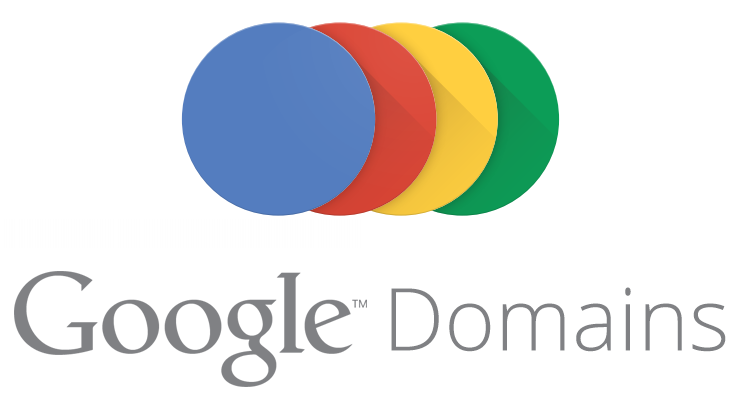
Google Domains is a simple domain name registrar. You can see the price of an item before adding it to your shopping cart, and it is transparent and reasonable. The most prevalent extensions (.com,.net,.org,.us, and.info) cost $12 per year, while.io costs $60 per year. You receive free domain privacy, but there are no DDoS protection options. The only other extension is for Google’s Workspace application. In addition, Google Domains does not provide nearly as many extensions as competing registrars.
We appreciate that Google Domains provides insight into your domain selection. For instance, we chose a.com with the word “castle” in it, and Google Domains informed us that some people may hear “kassel” and input it inaccurately. Google Domains makes registering a domain simple and offers few upsells.
5. Hostinger
Hostinger is a well-known name in the domain registrar market. If you’re preparing to establish a new website and need a solid platform, it’s one of the best and most popular domain registrars.
Hostinger not only provides low-cost domains, but also gives a discount on domain hosting when you sign up for one of its premium plans. Another plus is that certain hosting plans may sometimes provide the domain name for free.
With Hostinger’s domain service, you may obtain a robust, user-friendly, and WordPress-optimized control panel. Hostinger allows you to rapidly determine whether or not your desired domain is accessible.
6. Network Solutions
Another excellent option for domain registration services is Network Solutions. You may go through its premium domains before purchasing a fully new name in order to rank better in search engines.
When registering a new domain name, you may choose private registration, which will secure your personal information online.
It also allows you to bid on an expired or about to expire domain name. If you wish to acquire a domain name that is currently in use, you may utilise Network Solutions’ certified offer service to submit an offer to the existing owner.
You must purchase one of the platform’s hosting plans in order to obtain a free domain name. When you purchase a premium plan, you will also get a free SSL certificate.
7. Hover

Hover is primarily a domain registrar, but it also provides email services. If you register your domain with Hover, you will need to locate a distinct web host. Hover’s pricing is slightly above average for the industry, but domain privacy is provided for free. A.com extension costs $14.99,.org costs $13.99,.net costs $15.49, and.io costs $34.99. The renewal prices are identical.
Hover frequently offers discounts on particular extensions, so you may be able to save money at regular prices. A domain can be registered for up to 10 years, but there is no discount for registering it for multiple years. However, Hover offers discounts on mass domain renewals. Therefore, if you require multiple domains, you can save on 10 or more domains when you renew after the first year (multi-year programmes are also eligible for discounts). If you register 10 domains for two years each, for example, the second year of each domain is discounted.
8. GoDaddy
GoDaddy is one of the most established and well-known domain registration firms. They administer over 84 million domain names on behalf of over 20 million clients.
They provide a broad range of popular domain name extensions from which to pick. Their pricing are quite competitive, and you may even qualify for a substantial discount on the first year of your domain registration.
GoDaddy provides a premium Domain club membership with reduced domain price for professionals. If you are registering or maintaining hundreds of domain names, this makes sense.
GoDaddy’s domain administration interface is powerful and simple to use, allowing you to transfer your domain name, change name servers, update contact information, handle bulk domain renewals, and customise numerous other domain settings.
GoDaddy also offers a variety of additional online services, such as hosting, website creation, email marketing, and more.
9. Namecheap
Another excellent domain registrar is Namecheap. They provide a comprehensive domain search engine that can assist you in finding the correct domain name and will give recommendations if your selected domain name is not available.
They also provide domain add-ons such as domain privacy and premium DNS. Their domain administration interface is neat, but not as user-friendly as GoDaddy’s new design.
One wonderful feature of Namecheap is that they provide free whois privacy with all domain purchases.
We used to use Namecheap but ended up switching our primary domains to other providers due to too many problems entering into their domain administration panel.
Also, we’ve received far too many concerns about their managed WordPress hosting package, which doesn’t support popular plugins like AIOSEO and, contrary to what their support claims, the infrastructure isn’t suitable for scalability.
10. DreamHost
DreamHost is a reputable domain registrar that provides you with a variety of domain extension options, including generic, new, and country-specific. All of its features, including domain control, domain forwarding, and DNS record update, are made simpler by its administration interface for domains.
In addition to this, ambitious business owners may obtain brand-friendly and interesting domain names at prices that are affordable for their budgets. In addition to purchasing new domains, you can easily transfer an existing name to DreamHost from another platform for a low cost and with little effort.
When you buy a domain with DreamHost, you will get a free subdomain in addition to WHOIS domain privacy at no additional cost. If you want to go with their hosting service as well, you’ll have the ability to create an infinite number of free subdomains.
11. HostGator
Another well-known business that provides website proprietors with a one-stop shop for shared website hosting and domain name registration is HostGator. They provide a wide variety of extensions, privacy protection for domain names, and DNS control tools that are simple to use.
They provide a domain search engine that is straightforward to use and speeds up the process of finding a domain name that is appropriate for your company. Because their domain administration section is beginner-friendly as well as well-documented, it is simple to move domains if this becomes necessary in the future.
In addition to domain names and web hosting, they have also released a fresh new website builder known as Gator, which allows users to construct websites by dragging and dropping elements. They provide a free domain name and hosting space with each and every one of their website builder package options.
12. BuyDomains
BuyDomains gives you the ability to search for premium domain names that match the keywords of your search. The term “premium domain names” refers to domain names that have previously been registered but are now being offered for sale by a third party. Because they are often easier to recall, shorter, and more suitable for brandability, these domains command a higher price.
If you are unable to discover a domain name that is appropriate for your website and you have the financial means to do so, you may utilize BuyDomains to look for a premium domain name.
What Is the Best Domain Registrar?
There are literally hundreds of more domain registrars and resellers on the market that we have not included in the list. Some examples of such registrars and resellers include Hover, Google Domains, Tucows, 1&1 Ionos, Shopify, eNom, Name.com, Namesilo, and Porkbun.
The reason for this is that they all basically provide the same services, and we want to make it simple for our customers to choose the best and safest domain registrar without generating decision paralysis. The reason for this is that they all primarily offer the same services.
We believe that Domain.com is the most reliable and trustworthy domain registrar available on the market today for companies of all sizes. They provide the most competitive cost and provide all the features that are available.
If you are planning to create a website, then you may obtain a free domain name when you sign up for web hosting with either Bluehost or Hostinger. Both of these companies provide this perk.
Both of these web hosting businesses are among the greatest on the whole world, and in addition to that, they both provide step-by-step website setups for any kind of website, such as real estate websites, small company websites, online storefronts, and many more.
Frequently Asked Questions About Domain Name Registrars
-
What is a domain registrar, and why do I need one?
Factors to consider include pricing, domain extensions offered, customer support, security features, and domain management tools.
-
Are all domain registrars the same?
No, domain registrars vary in terms of services, pricing, and features. It’s essential to research and compare options.
-
What are domain extensions, and how do they affect my choice of registrar?
Domain extensions are the endings of domain names (e.g., .com, .net). Different registrars may offer different extensions, so consider your specific needs.
-
How do I know if a domain registrar is reputable?
Look for customer reviews, check their history, and see if they are accredited by domain authorities like ICANN.
-
What is ICANN, and why is it important in domain registration?
ICANN (Internet Corporation for Assigned Names and Numbers) oversees domain name registration to ensure a stable and secure internet.
-
What should I look for in terms of pricing?
Consider the initial registration cost, renewal fees, and any hidden charges or add-ons.
-
Can I transfer my domain between registrars?
Yes, domain transfers are possible, but some registrars may make it easier than others.
-
What security features should I expect from a domain registrar?
Look for features like domain locking, two-factor authentication, and privacy protection to safeguard your domain.
-
Is customer support important, and what level of support should I expect?
Customer support is crucial. You should expect responsive and helpful support via various channels.
-
Are there any restrictions on domain registration with certain registrars?
Yes, some registrars may have restrictions on certain domain extensions or country codes.
-
Do domain registrars offer hosting services as well?
Some registrars offer hosting services, but it’s separate from domain registration.
-
Can I register a domain for more than one year at a time?
Yes, most registrars allow you to register a domain for multiple years, often at a discounted rate.
-
What is domain privacy protection, and should I get it?
Domain privacy protection (WHOIS privacy) hides your personal information from the public WHOIS database. It’s recommended for privacy.
-
What happens if my chosen domain registrar goes out of business?
Ensure your registrar has a clear domain transfer process in case of bankruptcy or closure.
-
Can I register expired domains through a domain registrar?
Some registrars offer services to help you acquire expired domains through auctions or backorders.
-
How do I know if a domain name is already taken?
You can check the availability of a domain name through a domain registrar’s search tool.
-
What is domain DNS management, and why is it essential?
DNS management allows you to control how your domain directs traffic. It’s crucial for website functionality.
-
Can I change my domain registrar after registering a domain?
Yes, you can transfer your domain to a different registrar if needed.
-
Is it possible to get a refund if I change my mind about a domain registration?
Refund policies vary between registrars, so read their terms and conditions carefully before registering a domain.
Disclaimer: To help our readers we have provided infromation about best Domain Registrars based on my study. However your should take all points into consideration before choosing any
Domain Registrar at your own.

